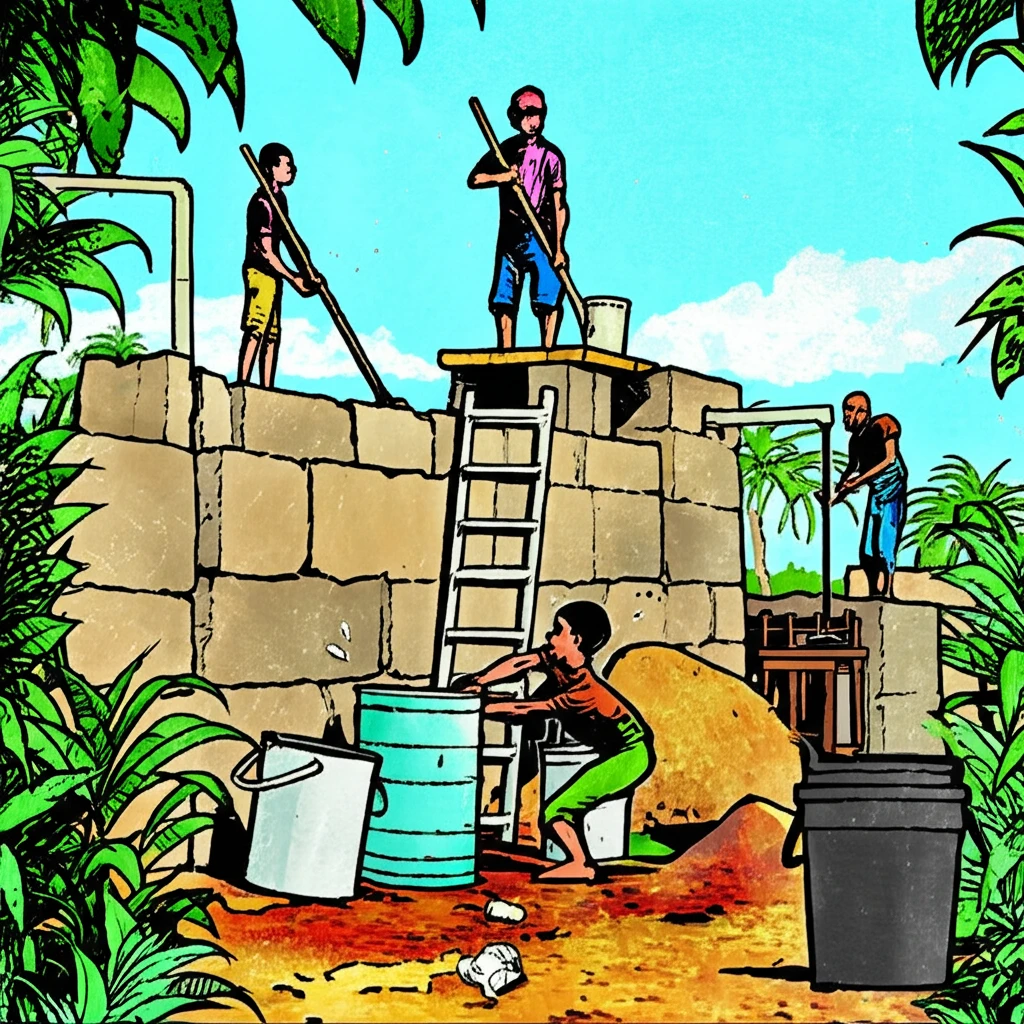
Ending Open Defecation: How Community-Based Sanitation Programs Are Changing Lives
"Discover how a simple, community-driven approach is revolutionizing sanitation in developing countries, offering a sustainable path to better health and dignity."
Globally, billions lack access to basic sanitation, leading to serious health risks and environmental concerns. Traditional approaches to solving this issue often involve providing infrastructure or financial incentives for toilet construction. However, a recent study focuses on a different tack: community-based programs designed to foster behavioral changes and promote sanitation from the ground up.
Published in January 2018, the research examines a community-led total sanitation (CLTS) program in rural Mali. Researchers investigated whether collective action and information could effectively encourage villagers to construct and consistently use latrines. The results offer a compelling case for the effectiveness of this approach, showing significant improvements in sanitation practices and community well-being.
This article delves into the details of the Malian experiment, exploring how community involvement and a shift in social norms can drive meaningful and lasting change in sanitation behaviors. By understanding the nuances of this approach, we can gain valuable insights into promoting healthier communities and achieving global sanitation goals.
The Power of Community: How CLTS Works

The CLTS approach is about igniting a community’s desire for change. Rather than simply providing toilets, CLTS facilitates a process where communities recognize the risks of open defecation and collectively seek solutions. The program in Mali, implemented with support from UNICEF, involved three key stages:
- Commitment: Participants create detailed timelines for constructing latrines or repairing existing ones.
- Follow-up: Local sanitation champions and CLTS staff conduct regular visits to monitor progress and provide support.
- Certification: Villages that successfully eliminate open defecation are awarded OD-free status, attracting media coverage and community celebration.
A Sustainable Solution for a Healthier Future
The CLTS model offers a promising path forward for improving sanitation and public health. By empowering communities to take ownership of their sanitation challenges, these programs foster sustainable behavioral changes and create healthier environments. This approach could be a key strategy in achieving global sanitation goals and building a more equitable future for all.
